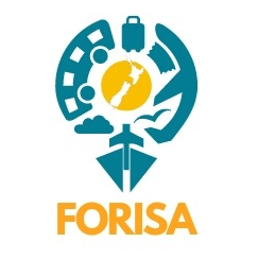Do I need a passport or visa to enter New Zealand?
All visitors to New Zealand must carry a passport valid for at least three months beyond their intended departure date, and Indonesian travelers have to apply for a Visitor’s Visa; for more information, please visit the New Zealand Immigration Service or Embassy websites.
Frequently Asked questions
When is the perfect time to explore New Zealand?
New Zealand's beauty shines throughout the year, with the best time to visit depending on your interests.
In autumn (March to May), the landscapes are stunning, making it an ideal time for hiking adventures. Winter (June to August) caters to snow enthusiasts, offering excellent opportunities for skiing, snowboarding, and enjoying breathtaking winter scenery.
As spring (September to November) arrives, the days grow warmer, snow begins to melt on the mountains, and the countryside bursts into color with vibrant blossoms and the arrival of adorable lambs.
Finally, summer (December to February) brings long, warm days perfect for swimming, kayaking, biking, and hiking, offering countless outdoor activities for everyone to enjoy.
Am I allowed to drive in New Zealand?
Yes, you can drive in New Zealand if you have a valid driver's license. If your license is not in English, you'll also need an International Driving Permit (IDP) or an official translation. Just make sure to familiarize yourself with New Zealand's road rules, as driving is on the left side of the road.
Should I make advance bookings for my accommodation and tours in New Zealand?
Yes, you should book ahead, especially during peak season from October to April. The busiest time is summer (Dec-Feb), so reserve tours and accommodation early. In winter (Jun-Aug), advance bookings are also recommended for popular towns like Queenstown and Wanaka.
Should I choose to visit the South Island, the North Island, or experience both?
It really depends on what you’re looking for in your trip!
North Island: Known for its vibrant cities like Auckland and Wellington, stunning beaches, and geothermal wonders like Rotorua. It’s great for a mix of culture, adventure, and relaxation.
South Island: Famous for its breathtaking landscapes, including the Southern Alps, fjords like Milford Sound, and outdoor activities such as hiking, skiing, and bungee jumping. If you’re into nature and adventure, this is the place to be.
Both Islands: If time allows, experiencing both gives you the best of both worlds! You’ll get the urban culture and geothermal landscapes of the North Island, along with the dramatic scenery and outdoor adventures of the South Island.
What is the currency used in New Zealand?
The currency used in New Zealand is the New Zealand dollar.
What items are permitted to bring into New Zealand?
When traveling to New Zealand, you can bring a variety of personal items, but there are strict regulations regarding food, plants, and animal products. Here’s a quick overview:
Allowed Items:
Personal belongings: Clothing, electronics, and personal toiletries.
Commercial goods: Some items with proper documentation.
Prohibited Items:
Food: Fresh fruits, vegetables, meats, and dairy are generally not allowed.
Plants and seeds: Many are restricted or banned.
Animal products: Certain items are also restricted.
Declare If Unsure:
Medications: Prescription drugs may need to be declared.
Sports gear and camping equipment: Cleanliness may need to be verified.
Please visit the New Zealand Ministry for Primary Industries (MPI) website on https://www.mpi.govt.nz/ for updated information.
What are the most popular destinations to explore in New Zealand?
New Zealand is renowned for its stunning landscapes and diverse attractions. Here are some of the most popular locations to visit:
North Island:
Auckland: The largest city, known for its vibrant culture, waterfront, and iconic Sky Tower.
Rotorua: Famous for its geothermal activity, Maori culture, and stunning lakes.
Wellington: The capital city, known for its arts scene, museums, and beautiful harbor.
Bay of Islands: A stunning region with beautiful beaches, historic towns, and water activities.
South Island:
Queenstown: The adventure capital, offering activities like skiing, bungee jumping, and hiking.
Milford Sound: A breathtaking fiord with dramatic cliffs, waterfalls, and wildlife.
Christchurch: Known as the "Garden City," with beautiful parks and a vibrant arts scene.
Franz Josef Glacier: A stunning glacier offering guided walks and helicopter tours.
Does New Zealand have Halal food?
Many cities in New Zealand, especially Auckland and Wellington, have a range of halal options. You'll find halal restaurants, cafes, and grocery stores that cater to dietary needs. It's always a good idea to check for halal certification or ask restaurant staff to ensure the food meets halal standards.
"Do I need a SIM card in New Zealand, and where can I purchase one?"
Getting a SIM card in New Zealand is a good idea if you want to stay connected. You can buy one easily upon arrival. Here’s how:
Airports: Most major airports have kiosks or shops selling SIM cards from providers like Spark, Vodafone, or 2degrees.
Mobile Stores: You can also find stores for these providers in cities and towns, often in shopping malls.
Convenience Stores: Some convenience stores and supermarkets sell SIM cards as well.
Before you buy, consider your needs regarding data, talk time, and duration of use. Many providers offer prepaid plans that are flexible and affordable. Just remember to bring an unlocked phone!
